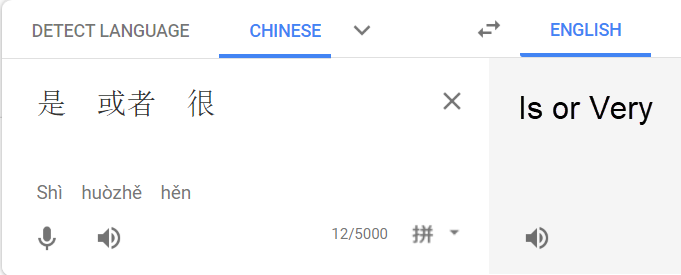Is or Very

Before I started learning other languages, I’d always heard people saying that translating was hard, but I didn’t really understand what they meant. When I was about 13, I was introduced to French, Latin, and Japanese. Now that’s an odd mixture. I started to see the problems. Directly translating a sentence word by word leads to either nonsense in the other language or clumsy language.
For Chinese, I wanted to cover a simple example today.
In English, we might say:
He is smart.
The direct translation in Chinese would be:
他是聪明。(Tā shì cōngmíng.)
And yes, Google Translate does return “He is smart” for that Chinese sentence. But the problem is that the sentence is wrong. If you just reverse the direction of the translation, Google returns:
他很聪明。(Tā hěn cōngmíng.)
Literally, that’s “He very smart”. And that’s how it’s said in Chinese.
And if you’ve talked to, or listened to, Chinese migrants in the past, you may well have heard them use exactly that type of malformed English.
In Chinese, you don’t just structure a sentence like
SubjectNoun is Adjective
That’s fine in English but not in Chinese. Similarly:
SubjectNoun Adverb Adjective
isn’t OK in English either.
很 (Hěn) meaning “very” is a common adverb but others could be used, to vary the intensity.
Incidentally, an adverb is called a 副词 (Fùcí) which is literally a secondary or auxiliary word.
2020-05-15
